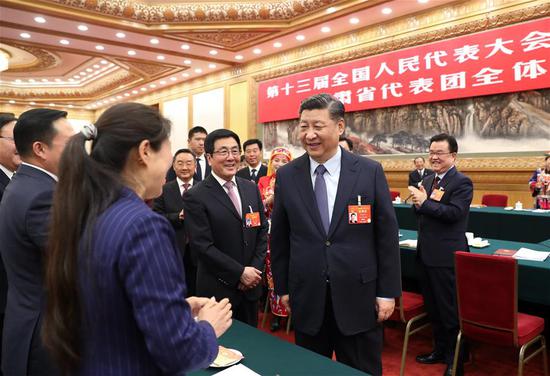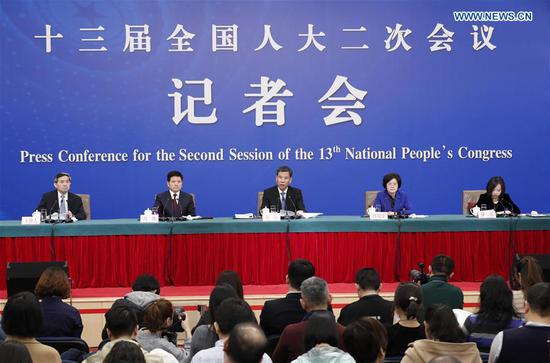
Job seekers speak with recruiters at Hefei University in Hefei, Anhui province, at a job fair for college graduates. (Photo/Xinhua)
In 2018, the average monthly salary of Chinese women was 6,497 yuan, which was 78.3 percent of that of men, an increase of 8.7 percentage points over the previous year, according to a report on China's gender gap in workplaces, released by online recruitment website zhipin.com on Wednesday. The report said that jobs, industries and seniority were the top three contributing factors of the gender pay gap, while education could help narrow it.
According to the report, job choice is the biggest contributor to the gender pay gap. Men generally are more inclined to take jobs with high work intensity and high salaries, such as technician or salesman, for example. Women, on the other hand, prefer jobs with average work intensity and moderate salaries, such as administrative, operational and marketing positions. In the past two years, more and more women have taken up senior technical, senior management and other senior posts. However, in most well-paid positions, the ratio of men to women is still seriously unbalanced.
In terms of industries, the engineering and manufacturing industries, including mining, smelting and chemistry, have a bigger gender pay gap. In the science and tech industries, such as the internet, medical care and electronic communications, large differences in earnings between women and men also exist, the report said.
The gender wage gap among first-time job holders is the smallest, with a gap of roughly 10 percent for those with less than three years of work experience. And the wage gap widens with seniority, according to data from zhipin.com. After working for five years, it is more difficult for women to get promoted in the workplace, their seniority-based salary increase rate is significantly lower than men's, and the gap will only accelerate with age.
When asked the main reasons that hinder women from getting promoted in the workplace, respondents ranked female employees' need to spend more time on their family, women's lacking of external resources and social support, and women's inadequacies in senior management positions as the top three factors.
The report noted that an increased level of education can boost women's earnings and competitiveness in the workplace. Data from zhipin.com show that the average salary of women with a master's degree or above is 68 percent higher than that of women with a bachelor's degree or below, which is 7 percentage points higher than that of men.


















































